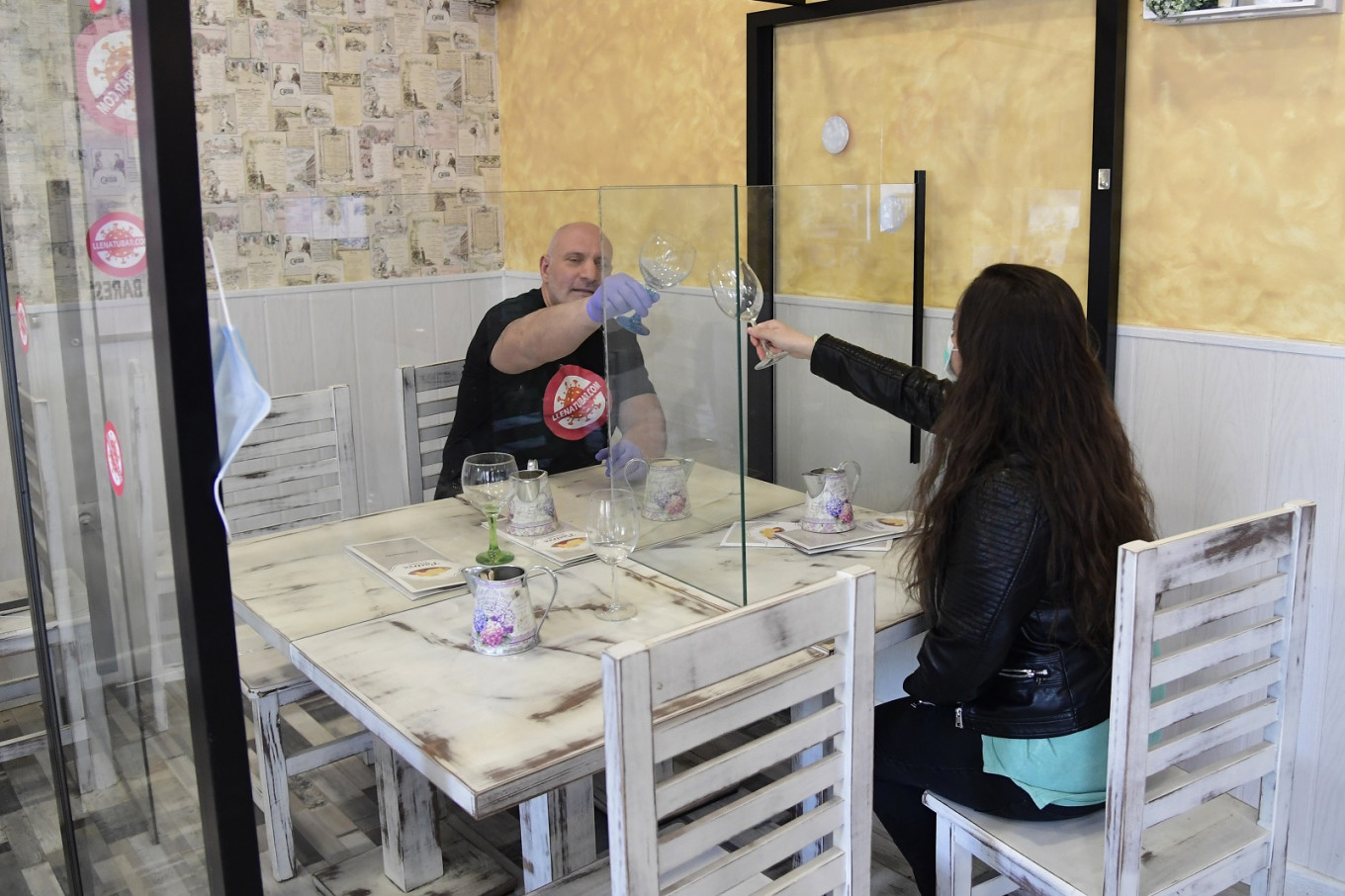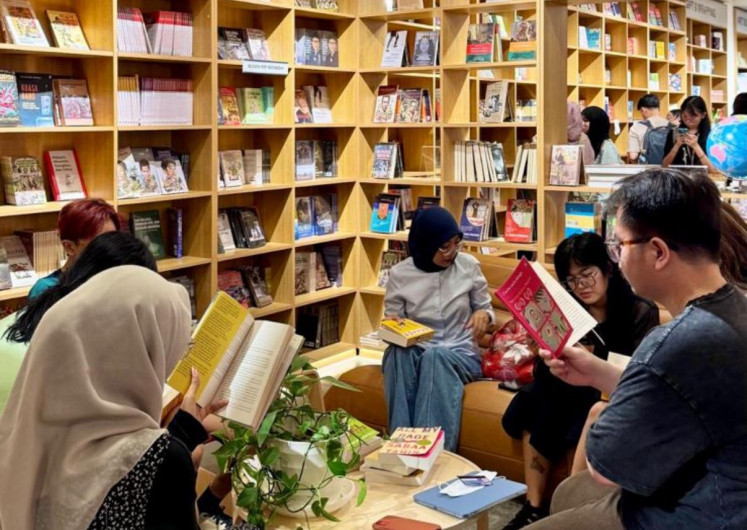Popular Reads
Top Results
Can't find what you're looking for?
View all search resultsPopular Reads
Top Results
Can't find what you're looking for?
View all search resultsPerspex screens, fever checks offer Spain cafes route to reopen
Change text size
Gift Premium Articles
to Anyone
A
s Spain's shuttered bars and cafes look to a post-pandemic future, some enterprising businessmen are hoping to restore confidence by installing perspex partitions and temperature-reading cameras to keep customers safe.
"We are going to have to change our ways of going out," says Manuel Gil, a 50-year-old running a pilot project at a bakery cafe in Leganes, a neighborhood in southern Madrid.
He has installed various partitions to show the different ways cafe owners can keep customers separated.
One is a large partition attached to the wall and the floor, cordoning off an area big enough to seat a family of four, another is a smaller model set up on a table to separate diners.
It's an idea being considered by some eateries as they look to reopen after the lockdown.
Bars and restaurants have been shut since March 14 across Spain, where the pandemic has killed more than 23,000, the third-highest figure in the world after the United States and Italy.
But for Gil, who has spent years revamping restaurants, the screens could be the key for businesses post-confinement.
"Any bar or restaurant that has eight to 10 tables could spend 700 or 800 euros ($755 to $860) to do up its premises (with these partitions) to reopen," he said.
"I don't think anyone could cope with their business being closed for six or seven months or a year."
As part of the pilot project, a camera has also been installed in the bakery that detects customers' body temperatures.
The reading is projected on to a large screen mounted inside, opposite the entrance.
Pedro Zamorano, who runs the company behind the technology, Covid Camaras, told AFP he began importing cameras from China a few weeks ago and has since ordered 12,500 units.
With a range of different technical specifications, prices range from 1,150 euros up to 20,000 euros.
"This one, for example, has a margin of error of 0.5 degrees Celsius," he said, pointing to the basic model fixed to the bakery wall.
The camera beeps when it detects a body temperature of more than 37 degrees Celsius, but it would not be able to pick up on an asymptomatic carrier with no fever.
Read also: Safer to eat in restaurants than at home, claims top French chef
New way of dining
As for the perspex screens, production will have to wait until the government announces how and when bars and restaurants can reopen.
So far, the government has confirmed only tentative moves to ease the lockdown, suggesting Spain would gradually start scaling back social and economic the restrictions from the middle of May.
On Sunday, kids in the country were allowed outdoors for the first time in six weeks.
Gil says his production lines are primed for action when the decision comes through, and claims they will be able to supply "the whole of Spain in less than a week".
For now, Spain's main hostelry association has said buying the partitions would be "an unacceptable investment" for the time being until the government unveils its reopening plans.
But it does back moves to take the customers' temperature and to "rethink seating capacity with a minimum distance between tables", along with providing hand sanitizer.
There are more than 300,000 bars, restaurants, pubs and accommodations for tourists across Spain, providing employment for some 1.7 million people.
The establishments account for some 6.2 percent of Spain's GPD, hostelry association figures show.
The association fears the pandemic will trigger the loss of some 270,000 jobs and the closure of around 15 percent of establishments if the industry manages to reopen its doors by the end of the June.











